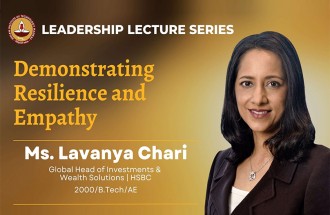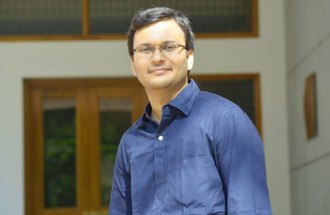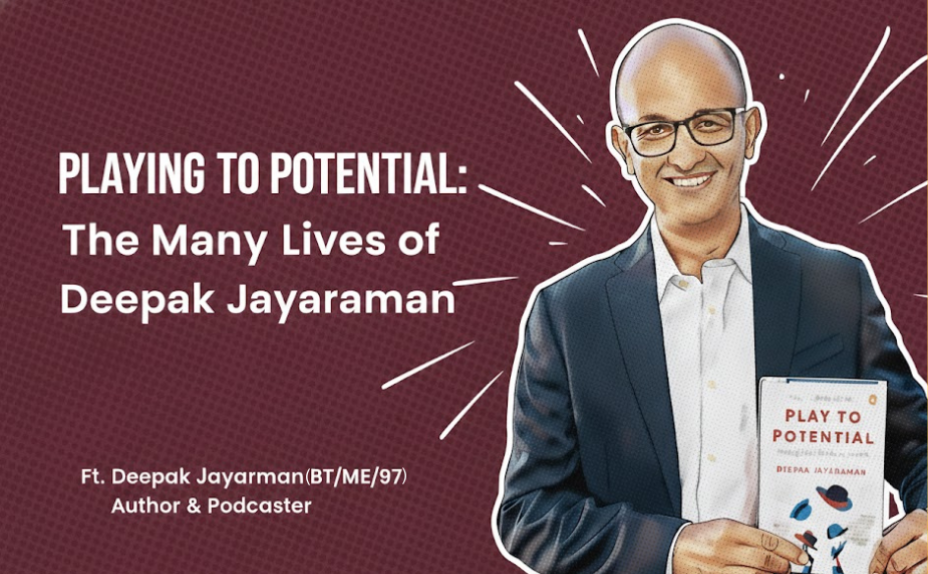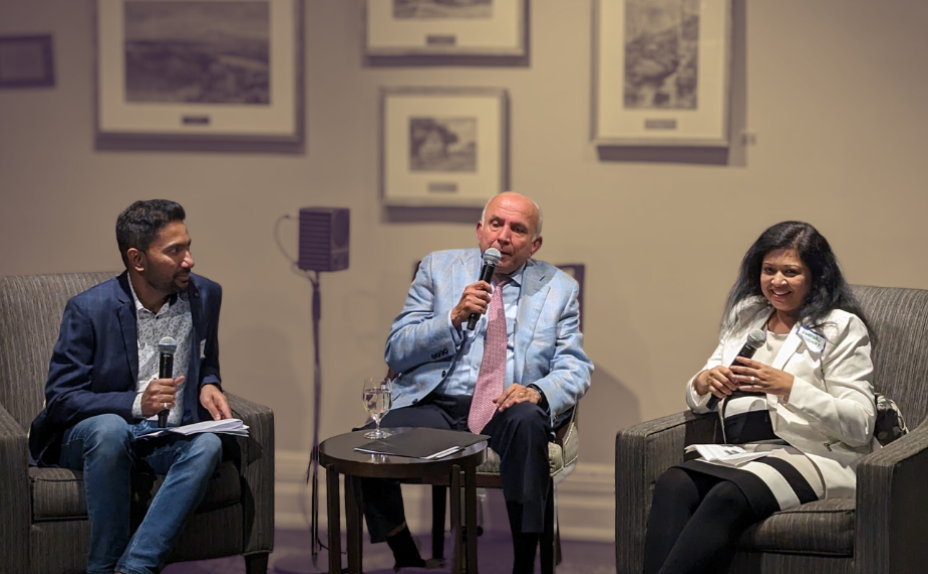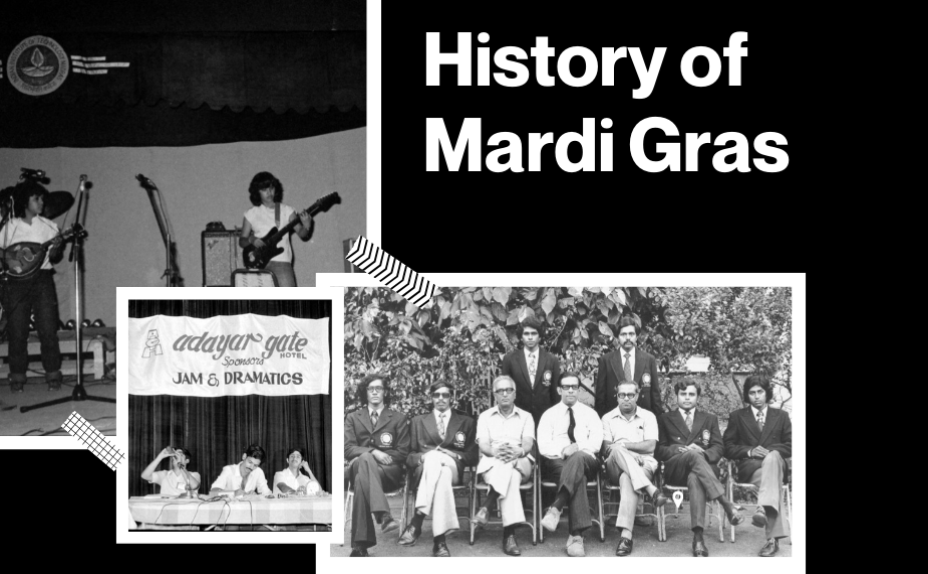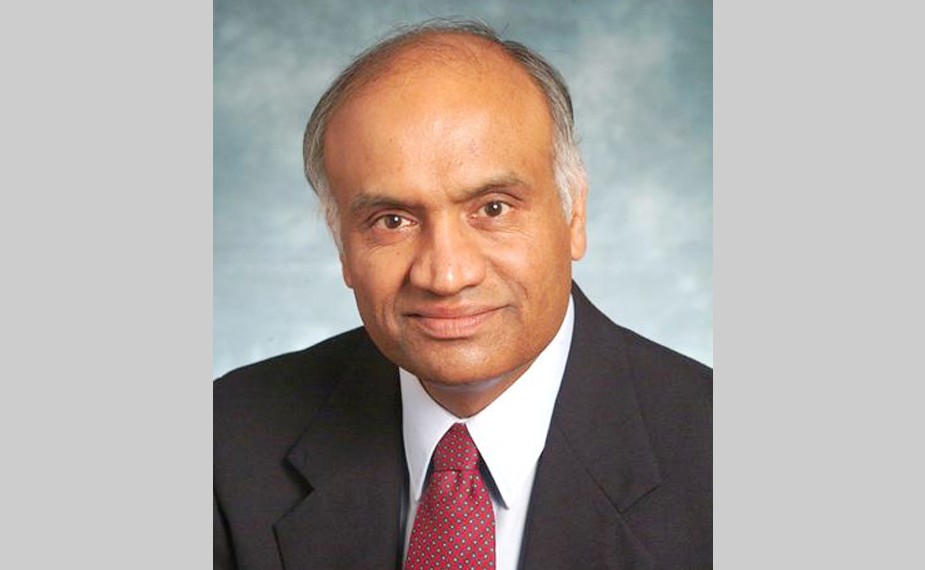
An Interview Of Our Distinguished Alumnus
1) What inspired you to obtain M.Tech in Industrial Management from IIT Madras? How do you see IIT Madras different from your other Alma matters, and how has it shaped your professional life?
Two courses that I took during the final year of my Bachelor of Engineering degree program at the Indian Institute of Science, Bangalore (Economics and Industrial Psychology) stimulated my interest to pursue graduate studies in business administration/management. The options at that time (1971) were the MBA programs at the Indian Institute of Management (Ahmedabad and Calcutta) and the M. Tech program in Industrial Management at IIT, Madras. The cost of the IIM programs (tuition and living expenses) was way beyond my financial means. On the other hand, the M. Tech program in Industrial Management at IITM, while highly selective, came with a monthly stipend of two hundred and fifty rupees for the duration of the program. I consider myself fortunate to be among the 15 who were admitted to the program in 1971.
Some of the courses in the M.Tech program had a term paper requirement and counted for about 25% of the course grade. There was a clear expectation that the term paper would be based on a review of literature on the assigned topic (i.e., the term paper should demonstrate evidence of what a student had learned of her/his own volition on the topic). This entailed spending long hours in the library perusing articles published in business magazines such as the Harvard Business Review, journals such as the Journal of Marketing, and books on the assigned topic. Often, during the search for articles or books on the assigned topic, coming across and reading interesting articles on related topics nurtured in me a habit of reading broadly and widely. Also, coming across articles authored by scholars of Indian origin in marketing journals inspired me to pursue doctoral studies in the US.
2) How did life in IIT Madras mold you as a person? What were the biggest takeaways from your college life?
To answer this question, I need to narrate a lesson for life that was imparted to me while I was a student in the Bachelor of Engineering program at the Indian Institute of Science, Bangalore. During the orientation program for new admits, Professor Chandrasekaraiah, who was then the Head of the Department of Electrical Communication Engineering, had advised us to the following effect (not a verbatim quote; I am paraphrasing the gist of Professor Chandrasekaraiah’s advice that I have often conveyed to my students during the course of my academic career): The purpose of the various courses in this program are to expose you to some basic foundational concepts, principles and theories in specific subject areas. As and when you develop an interest in a subject area and a specific topic therein, you should think of the library as the place for learning, and spend long hours learning on your own, and no longer rely on professors to teach you everything you need to know.
In the M.Tech program at IITM, I was fortunate to be taught by some outstanding professors, such as Dr V. Anantaraman and Dr L. V. L. N. Sharma. I was awed by their level of preparedness for each class session and their highly effective yet different teaching styles. However, for some of the courses, we did not have resident faculty. The courses that were taught by guest faculty and by practitioners were a mixed bag. I recalled Professor Chandrasekaraiah’s advice on the importance of self-learning and began spending long hours in the library at IITM. The key to a professionally successful and personally satisfying career in the academia as a researcher and teacher is being a life-long student.
3) Why did you choose teaching as a profession apart from landing any corporate job? How did you cater your interest in marketing and related research?
During all my years as a student in India (St. Joseph’s School, Bangalore: 1953-1964. St. Joseph’s College, Bangalore: 1964-1968. Indian Institute of Science, Bangalore: 1968-1971. Indian Institute of Technology, Madras: 1971-1973), I was fortunate to be taught by many dedicated and outstanding teachers and professors. They were role models and a source of inspiration. I guess the force of the gravitational pull by my role model teachers and professors made me choose teaching as a profession and a calling.
4) Your professional life was always related to Texas A&M University as a Professor. Why did you choose Texas A&M University?
Before joining the faculty of Texas A&M University, I was on the faculty of the State University of New York, Albany, for three years. During that time, I taught two courses in the MBA program (Marketing Strategy and Innovation). At the same time, I was exploring opportunities to move to a university where I would have an opportunity to work with doctoral students. It was my good fortune that the Marketing Department at Texas A&M University was in the market to hire a faculty specialising in marketing strategy and extended me an offer. I joined Texas A&M in June 1981. From 1982 onwards until 2018, I taught a doctoral seminar on marketing strategy research every alternate year. To date, I have been privileged to serve as Chair or Member on 41 doctoral dissertation committees and co-author several journal articles with doctoral students, including a few that were recognised with best paper awards.
5) What are the changes that you observed during your professional career in the field of marketing, and how do you appraise them? What are your contributions to the field which you are extremely product of?
Knowledge obsolescence and new knowledge are inevitable facts of life. For instance, I currently devote about 40% of the class sessions covering issues relating to innovating for environmental sustainability, innovations for the base-of-the-pyramid markets, and digital innovations. None of these topics were in the course syllabus 20 years ago.
I am deeply gratified about my contributions to the marketing discipline by serving as editor of the Journal of Marketing and the Journal of the Academy of Marketing Science, and I am indebted to my academic peers for selecting me to serve as editor of these flagship journals of the discipline.
I am deeply gratified to have had an opportunity to collaborate with doctoral students. Out of curiosity, to respond to the above question, I checked the Google Scholar citations and was pleasantly delighted to find out that seven of my ten most widely cited articles are co-authored with my doctoral students (some while they were still in the doctoral program and others after they had graduated).
As regards my sole-authored journal articles, it was a labour of love working on the following and a gratification when they were recognised with best paper awards.
? Varadarajan, Rajan (2010), “Strategic Marketing and Marketing Strategy: Conceptual Domain, Definition, Fundamental Issues and Foundational Premises,” Journal of the Academy of Marketing Science, 38(April), 119-140. (Received Sheth Foundation Award for Best Paper Published in Volume 38 of the Journal of the Academy of Marketing Science).
? Varadarajan, Rajan (2017), “Innovating for Sustainability: A Framework for Sustainable Innovations and a Model of Sustainable Innovations Orientation,” Journal of the Academy of Marketing Science, 45(January), 14-36. (Received Sheth Foundation Award for Best Paper Published in Volume 45 of the Journal of the Academy of Marketing Science).
6) What is the major difference you have noted in the academia in India and the U.S.? How do you think India can develop its Research and Development arena to a higher, competent level? Also, how do you evaluate the migration of young, talented Indian professionals to the U.S.? Does it signal a low-quality professional aspect in India? If yes, what are the ways in which we can improve the same?
In respect of resources and facilities needed for doing high-quality research, the gap between universities in the U.S. and top-tier institutions in India are fading fast. In recent years, I have served as an external reviewer (evaluator) for doctoral dissertations by students enrolled in the Ph.D. program at IIT Madras. I have been impressed with the quality of the doctoral dissertations (conceptual and methodological rigor) and their substantive focus.
Regarding the migration of talented professionals from India to the U.S. and other countries, my stance is “have faith in the virtue of the invisible hand.” The invisible hand, an economic concept, was expounded by Adam Smith in 1759 in a book titled, The Theory of Moral Sentiments. The concept describes the unintended greater social benefits and public good brought about by individuals acting in their own self-interest.
7) What are the changes or challenges we are likely to encounter in international marketing, sustainability, and E-Commerce in the post-pandemic period, according to your expertise and observation?
Indeed, there have been disruptions in each of the above areas in the aftermath of the pandemic. For instance, increased levels of production, use, and waste of plastic due to the pandemic have set-back in society’s progress toward environmental sustainability. At a global level, decades of societal progress toward poverty reduction have been neutralised and, even worse, reversed by the pandemic, with the world’s poorest bearing the brunt of the pain. Major disruptions in global supply chains and the resultant shortage of crucial parts such as semiconductor chips have resulted in a slowdown of manufacturing in a variety of industries and, in turn, shortages of finished goods (e.g., appliances, automobiles, computers, and home entertainment devices) fuelling inflation.
At the same time, one should not lose sight of the fact that new problems that surface are springboards for scholarly research. As the saying goes: “Never let go of a problem to waste. Use it as an opportunity for innovations as solutions to the problem.”
8) Could you briefly reminisce about some memorable experiences you had in the institute? Are there any funny or unfortunate moments which you can never forget? Were you involved in any other extracurricular activities like sports or cultural activities?
The following is a sad event that I have often thought about over the years. There was a washerman (dhobi) who lived in Taramani outside of the campus and used to stop by once a week to collect clothes from students in the Narmada hostel for washing and ironing. One day, he knocked on my door with a sad face, telling me that his five-year-old daughter had died. I offered my condolences and offered him some money to cover the funeral expenses. Instead, he asked if I had a camera. When I replied that I did not have one, he asked if I knew anyone who had a camera. He said that he did not have any picture of his daughter while she was alive and wanted to have at least a photo of his deceased daughter before she was cremated. After a couple of us knocked on a few doors, we found a student who had a camera. A few of us went with the washerman to his hut in the Taramani village and took a few pictures of the deceased child with the grieving parents. Many students donated money to the washerman.
I wasn’t involved in any extracurricular activities.
9) It has been more than 40 years since you left the institute. How has IIT Madras developed over these years? What are the changes you observe on the campus?
The state-of-the-art facilities are impressive. The articles published in the IIT Madras Newsletter are indicative of a vibrant intellectual environment. Given my interest in issues relating to innovation, innovations for the base of pyramid markets, and environmental sustainability, I have been fascinated to read news items such as the following in the IIT Madras Newsletter:
? IIT Madras Researchers Launch India’s First Indigenously Developed Polycentric Prosthetic Knee
? IIT Madras Researcher, Independent Researcher, Urge Countries to Absorb Climate Refugees
8) Any words of wisdom or advice for young people interested in marketing and teaching?
My advice to doctoral students and faculty who are in the early years of their academic career is to think long-term about their research and teaching focus and to strive for synergy between their teaching and research. For someone who is passionate about scholarly research, teaching, and service to the discipline, a career in the academia could last for three, four or even five decades. Therefore, it is important to think long-term about the field(s) in which one chooses to specialise. Focus on research questions that appeal to you as interesting research questions, intriguing research questions, invigorating research questions, and intellectually challenging research questions.
My second advice to doctoral students aspiring for a career in the academia and to faculty is, be a caring, committed, and considerate mentor to your students. When I was a student in the M.Tech program from 1971 to 1973 and later a Lecturer from 1974 to 1976, Professor R. K. Gupta and Dr V. Anantaraman were my mentors. I greatly benefited from their mentorship and would like to take this opportunity to express my gratitude to them and to all other teachers and professors who have made a difference in my life for the better. Thank you.
Bio:
Shri Rajan Varadarajan received his Master of Technology in Industrial Management from IIT Madras in 1973, after securing a Bachelor of Science and Bachelor of Engineering from Bangalore University in 1968 and the Indian Institute of Science in 1971, respectively. He received a doctorate in Business Administration with a major in Marketing from the University of Massachusetts, Amherst in 1979. Currently, he is a University Distinguished Professor, Regents Professor, and holder of the Ford Chair in Marketing and E-Commerce in the Mays Business School at Texas A&M University. Over the course of his career, marketing strategy, innovation, international marketing, and environmental sustainability have been the major focus of his research and teaching, and the areas to which he has made significant contributions.
Teaching, Research and Service have been the primary aspects of his professional career and are evident from the journal articles he has authored, positions held, and the honours and awards bestowed upon him over his 44-year academic career, including 41 years at Texas A&M University. Besides teaching and research, he has proved his prowess by serving as editor of two leading journals in marketing – Journal of Marketing and the Journal of the Academy of Marketing Science. He has authored/co-authored over 125 journal articles and book chapters, a textbook on Strategic Market Planning, and made over 250 presentations at major national and international conferences, doctoral and faculty consortia, universities, and other forums. In recognition of his commitment and dedication to teaching and research, he has been honoured with prestigious appointments such as University Distinguished Professor, Regents Professor, and Ford Chair in Marketing and E-Commerce at Texas A&M University. He also held certain administrative positions at Texas A&M University, ranging from Associate Dean to Department Head. His Keynote Addresses, Distinguished Lectures, Public Lectures, and Invited Presentations at Conference Plenary Sessions reflect his immense contribution to the field of marketing.
Shri Rajan Varadarajan is a Fellow of the American Marketing Association and a Distinguished Fellow of the Academy of Marketing Science. He currently serves as a member of the Editorial Review Boards of several prominent marketing journals such as the Journal of the Academy of Marketing Science and the Journal of International Marketing. He is a recipient of several prestigious awards and honours, including the Mays Business School Lifetime Achievement Award for Research and Scholarship (2016), American Marketing Association Distinguished Marketing Educator Award (2015), University of Massachusetts Graduate School Centennial Award (2008), and Academy of Marketing Science Distinguished Marketing Educator Award (2003). In recognition of his remarkable accomplishments and commitment to the field of marketing and academia, he was bestowed the Distinguished Alumni Award for the year 2022 by IIT Madras.
Linkedin Profile: linkedin.com/in/rajan-varadarajan-b71bb02a


